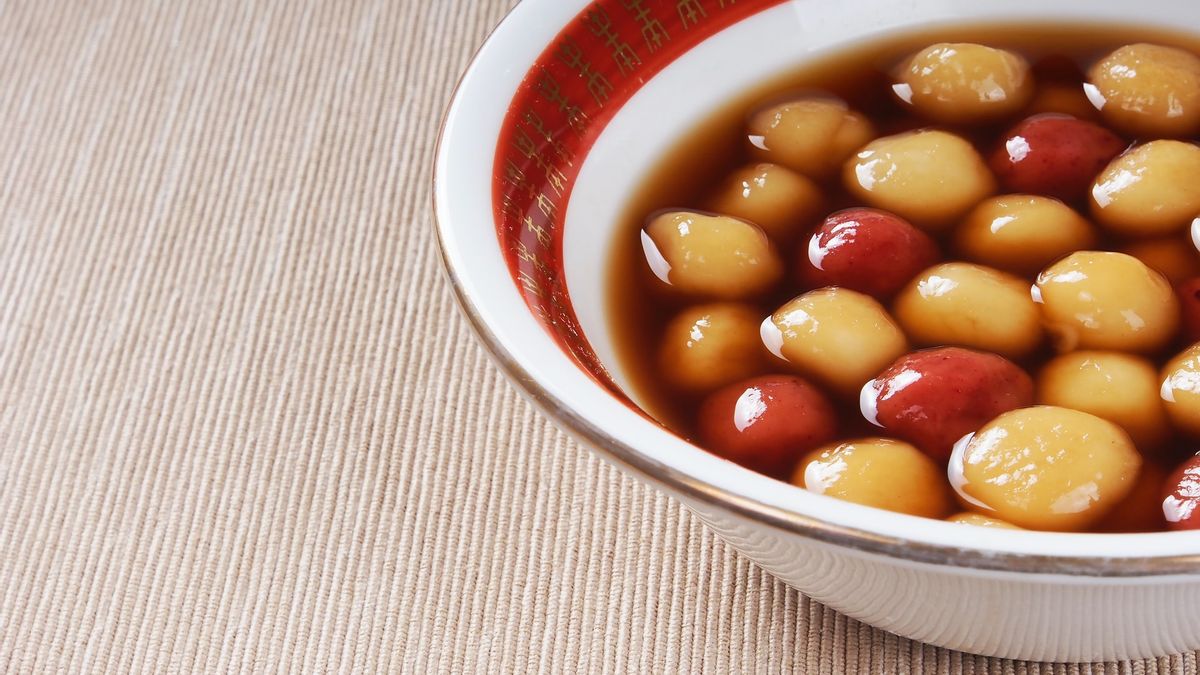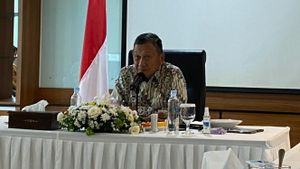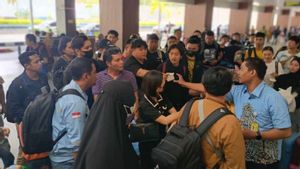
JAKARTA - Although this year's Cap Go Meh celebration will be much different from previous years, the spirit of welcoming good fortune can be widely felt.
Well, remembering it's good at home even in the moment of celebration 15 days after Chinese New Year, you can still enjoy its special dishes.
Of course wedang ronde is familiar to those of you who live on the island of Java, especially in the areas of Central Java, DI Yogyakarta, and its surroundings. In fact, the typical dish during Cap Go Meh which is called tangyuan is similar to wedang ronde. So, what is the difference between the two? Let's take a look at the reviews from VOI.
Reporting from Shine, Friday, February 26, buyers are willing to wait in long lines to buy tangyuan at the Wang Jia Sha restaurant in Jing'an District, Shanghai. Tangyuan is an important and best-selling treat at the Lantern Festival.
Tangyuan are glutinous rice balls with a sweet or salty filling. In the restaurants in Shanghai mentioned above, there are various variants of tangyuan. Starting from the filling of boiled crab to salted egg yolk plus shredded meat.
The shape is round, so it is attached to a symbol of closeness and togetherness with family. Well, tangyuan or also called yuanxiao has a chewy and sticky texture because it uses glutinous rice flour.
For sweet tangyuan, it does have the same ingredients and manufacturing method as wedang ronde. Namely made from glutinous rice flour with chopped peanuts and white sugar plus a little salt. Well, what's different is the additional mix before serving.
Sweet Tangyuan will only serve glutinous rice flour and brown or white sugar gravy. Meanwhile, wedang ronde, glutinous rice flour circles will be added to the bread, fro, klici beans, and pearl sago before being bathed in brown sugar sauce plus ginger.
Reporting from Kompas, Friday, February 26, wedang ronde is indeed the result of assimilation of Chinese culture in the archipelago. Eaten during Dongzhi celebrations and eaten with family after prayers. For the Indonesian people, wedang ronde can be enjoyed when traveling to certain areas.
Unlimited time, wedang ronde can be enjoyed as a result of cultural assimilation. So why is it called wedang ronde? Wedang is a drink that is served warm and made from sugar.
While ronde comes from the Dutch word rond which means round. Then it is called rondje because it means plural and there is an adjustment of the pronunciation into a round.

If you want to stay at home, you can try making wedang ronde or tangyuan with the following recipes:
Materials needed
¼ kg of white glutinous rice flour
3 tablespoons tapioca flour
250 ml of warm water
Food coloring
Salt to taste
Enough water
Material contents
100 grams of peeled and roasted peanuts
50 grams of sugar
30 grams of brown sugar
Enough water
Sauce ingredients
200 grams of fine combed brown sugar
800 ml of water
Ginger burned and crushed
3 pieces of pandan leaves, kneaded and knotted
Supplementary material
Roasted peanuts
Kaling boiled
Boiled pearl sago
White bread, cut into small cubes
How to make tangyuan or wedang ronde Make the filling first, roughly chop the peanuts. Cook a little water. Enter the peanuts and add sugar according to taste. For tangyuan dough, mix the glutinous rice flour and tapioca plus a little salt. Pour warm water little by little while kneading until smooth. After the dough is combined, add food coloring. Then make a round shape as well as fill it in. Bring the water to a boil and put the dots in it. Remove when floating on the surface. To make the sauce, bring the water to a boil and add the ingredients for the broth. Serve some tangyuan spheres in a bowl, add the complementary ingredients and finally, pour the sauce over.How to make wedang ronde or tangyuan is very easy, right?
The English, Chinese, Japanese, Arabic, and French versions are automatically generated by the AI. So there may still be inaccuracies in translating, please always see Indonesian as our main language. (system supported by DigitalSiber.id)












